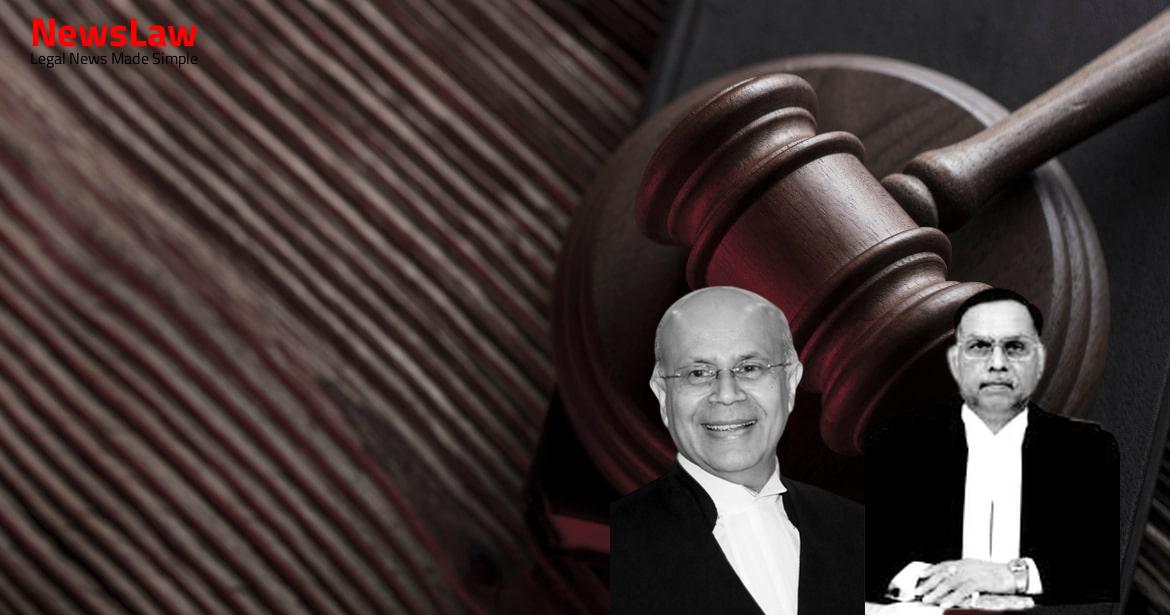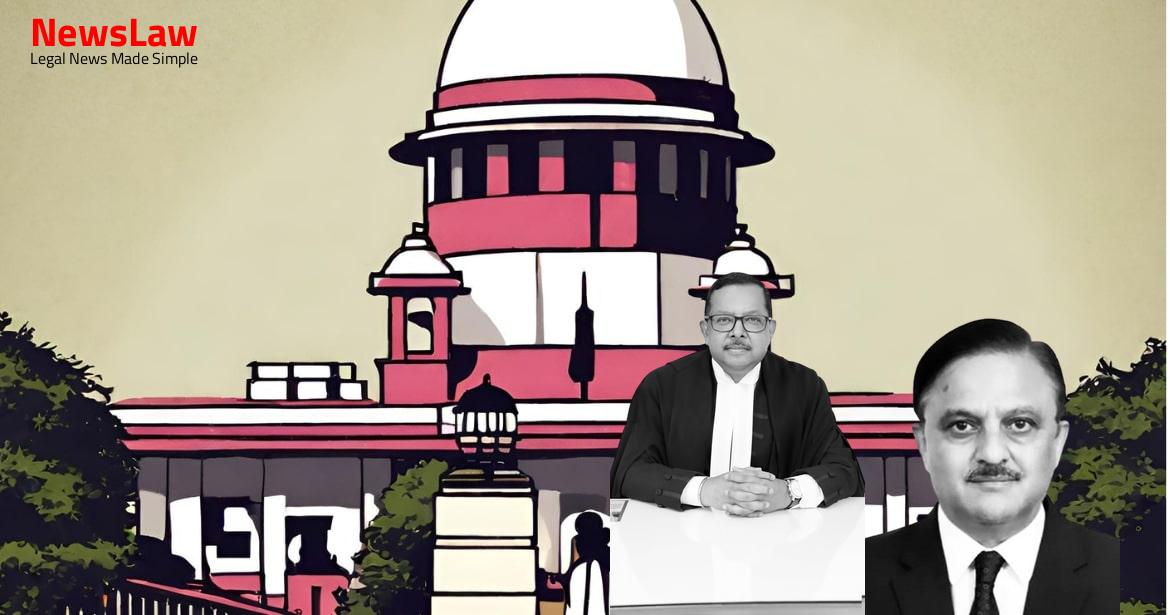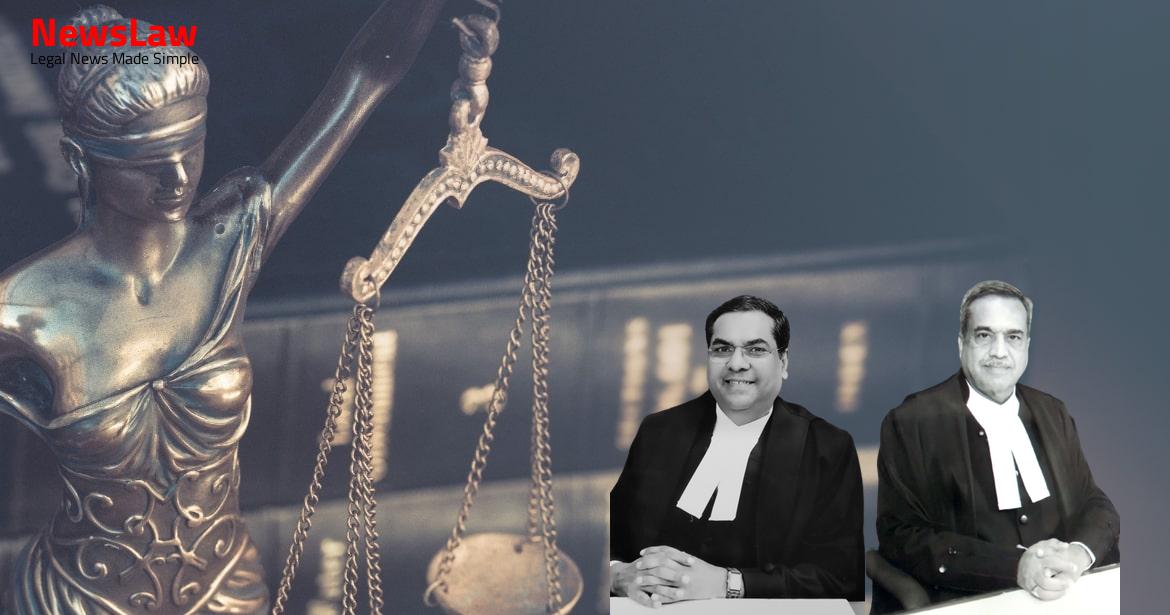In a landmark decision by the Supreme Court of India, a ruling was made on the DNA test directive case. The case centered around the order for conducting a DNA test at the request of the SHO, Bapatla Town Police Station, involving the fake caste certificates obtained by the individual now known as ‘Kathi David Raju son of Yedulcondalu’. The court scrutinized the lack of adequate justification for the DNA test directive and the incomplete investigation by the authorities. Stay updated on this significant legal development. #SupremeCourt #Legal #DNATest
Facts
- The Additional Junior Civil Judge ordered for conducting a DNA test at the request of the SHO, Bapatla Town Police Station.
- The appellant’s two children also obtained fake caste certificates of ‘Yanadi’ caste.
- The appellant was arrested on 11.01.2016 based on the FIR and sent for judicial remand.
- The appellant, now known as ‘Kathi David Raju son of Yedulcondalu’, originally had the name ‘Immadabathina Veeranjaneyulu s/o Venkata Kotaiah’.
- Aggrieved by the order dated 22.01.2016 passed by the Additional Junior Civil Judge, the appellant filed an application under Section 482, Cr.P.C. in the High Court.
- The application sought the quashing of the order dated 22.01.2016, which was dismissed by the High Court through the impugned judgment.
- The appellant’s counsel argued that the Magistrate erred in directing for a DNA test due to insufficient grounds and material provided.
- The Investigation Authorities have not provided adequate justification for the DNA test directive.
Also Read: Dispensation with Personal Appearance in Criminal Case: Landmark Judgement by Supreme Court of India
Arguments
- Argument made by the petitioner’s counsel that the respondent is an office bearer of a fake association with personal ill-will towards the appellant.
- Mention of Section 53 Cr.P.C. empowering police to request a DNA test.
- Reference to The Andhra Pradesh (SC, ST and BCs) Regulation of Issue of Community Certificates Act, 1993 which includes provisions for cancellation of false community certificate and penalties.
- Claim that the FIR filed by the respondent was malicious and intended to harass the appellant.
- Submission by respondent’s counsel that police sought permission for DNA test due to discrepancy in appellant’s claimed parentage in the FIR.
Also Read: Case of Unnatural Death in Matrimonial Home: Supreme Court Judgment
Analysis
- The police authorities requested a DNA test without substantial investigation.
- The FIR alleged false caste certificate obtained by changing name and parentage.
- The order noted that investigation was incomplete and evidence needed to be collected.
- The police requested DNA test to prove blood relationship without substantial investigation.
- The court allowed the DNA test without proper basis or investigation.
- The order passed by the Additional Junior Civil Judge dated 22.01.2016 was deemed unsustainable.
- The High Court made an error by not setting aside the said order using its inherent jurisdiction under Section 482 Cr.P.C.
- The Investigating Authority did not present any materials during the investigation to support the necessity of conducting a DNA test on the appellant, his mother, and two brothers.
Also Read: The Jodha Ram vs. Kaushaliya Dispute: Supreme Court Judgement Summary
Decision
- The High Court judgment and order have been set aside.
- The Court may consider the request for conducting a DNA test if there are sufficient materials on record.
- The appeal has been allowed to the extent mentioned.
Case Title: KATHI DAVID RAJU Vs. THE STATE OF ANDHRA PRADESH
Case Number: Crl.A. No.-001186-001186 / 2019



